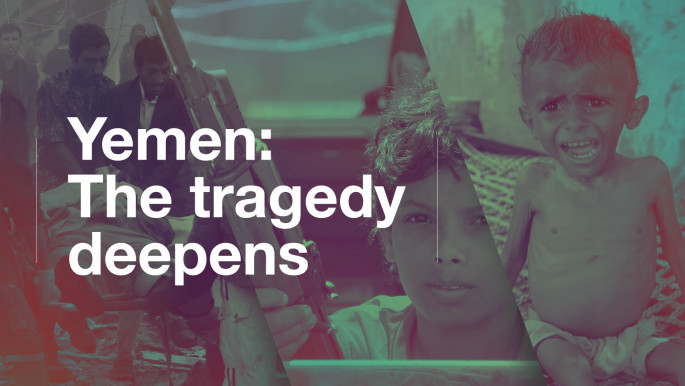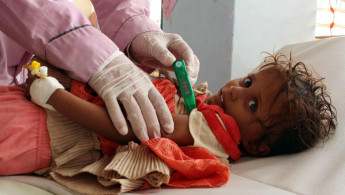Saudi-coalition 'restricting fuel' to deliver desperately needed Yemen aid
Auke Lootsma, the country director of the UN Development Programme said via a video link on Tuesday that the UN has been facing problems delivering aid to Yemen due to the lack of co-operation from the Saudi-led coalition.
The UN operates two flights into Yemen’s Houthi held capital city Sanaa to deliver aid, from Amman and Djibouti.
However, due to the lack of jet fuel available in Sanaa, the UN must make alternative arrangements for return flights, something which they say the Saudi-led coalition is not facilitating.
The aid is urgently needed, with seven million people being at risk of famine and a cholera outbreak.
On Saturday, the World Health Organisation (WHO) had announced that Yemen's cholera epidemic has killed 1,992 people, with the northwestern province of Hajjah and the Red Sea port city of Hodeidah being particularly hit-hard by the waterborne disease.
 |
|
| Read more on the Yemen crisis here |
It added that 419,804 suspected cases of the intestinal disease have been reported since April 27, saying that the rate of infections has been "increasing at an average of 5,000 a day".
Lootsma said the food crisis in Yemen is “a man-made crisis” caused by “not only decades of poverty and underinvestment but also a war tactic of economic strangulation.”
“Historically, Yemen has been one of the poorest Arab nations – if not the poorest – with [poverty] and corruption, poor governance and poor infrastructure. The war has simply made it much worse,” Lootsma added.
Since March 2015, a Saudi-led military coalition has led airstrikes in Yemen against Iran-backed Houthi rebels who orchestrated a bloody coup against the Hadi government in September 2014.
Riyadh, which has been accused of war crimes in the intervention, has been frustrated into a stalemate in its effort to restore the authority of President Abd Rabbo Mansour Hadi.
The war has brought Yemen to the brink of collapse, with two-thirds of the country's population of 19 million now living in need humanitarian aid.
Less than 45 percent of the country's hospitals are operational, with those still in use suffering from huge shortages in power, staff and medication.
Sieges and blockades by both sides in the conflict have exacerbated the humanitarian situation, with rights groups accusing all sides of human rights violations.





 Follow the Middle East's top stories in English at The New Arab on Google News
Follow the Middle East's top stories in English at The New Arab on Google News
![Israeli forces ordered bombed Gaza's Jabalia, ordering residents to leave [Getty]](/sites/default/files/styles/image_330x185/public/2176418030.jpeg?h=a5f2f23a&itok=_YGZaP1z)

